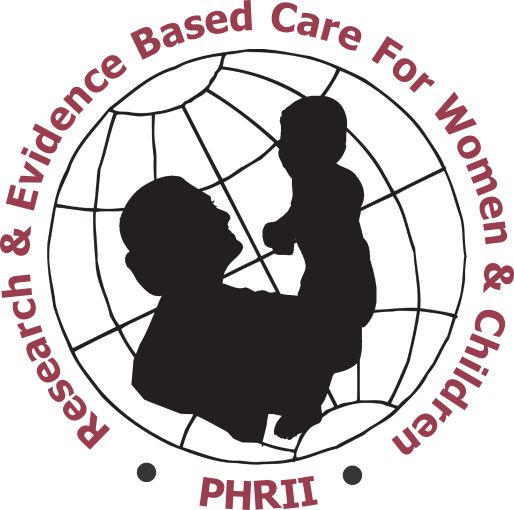



Public Health Research Institute of India(PHRII)
We are committed to ensuring that our community has voluntary access to culturally sensitive and comprehensive services for family planning, reproductive health, and cancer screening Scroll down to learn more.
Public Health Research Institute of India(PHRII)
We are committed to ensuring that our community has voluntary access to culturally sensitive and comprehensive services for family planning, reproductive health, and cancer screening Scroll down to learn more.
OUR STORY
Founded in 2007 as a non-profit charitable trust, PHRII is officially recognized as a scientific and industrial research organization by the Government of India. We serve urban, peri-urban, rural, and tribal communities across Mysore district through the Prerana Health Clinic, providing outpatient and mobile services focused on non-communicable diseases, family planning, reproductive health, and cancer screening for low-income populations. Our facilities feature a dedicated laboratory offering biochemistry, microbiology, and molecular services, supported by an administrative core that manages grants and a community health department leading education and awareness initiatives. Through collaboration with stakeholders, we strive to empower our community to enhance their health and combat cancer. As we enter our second decade, we remain steadfast in our commitment to achieving equitable health for all Mysoreans.
Our Philosophy: We believe that everyone deserves access to high-quality, personalized, and evidence-based healthcare.
Our Vision: An equitable society where everyone can access patient-centered, evidence-based, and high-quality healthcare.
Our Mission: Is to enhance the quality of life, well-being, and health of our community through research, training, evidence-based advocacy, and care. We strive to collaborate with universities, government agencies, and other nonprofit organizations to amplify the impact of our efforts and better serve our communities.
Core Values
Respect for all people
Honesty
Hard Work
Continuous Improvement

THE PROBLEM
THE PROBLEM
PROBLEM 1
Service Delivery
Indian women frequently prioritise their family's needs above their health, often delaying medical care until their conditions become serious. Routine general and reproductive health check-ups, as well as preventive cancer screenings, are often overlooked, especially when financial constraints are a factor.
PROBLEM 3
Public Health Training
The Government of India and the Karnataka State Government have significantly advanced public healthcare, extending services to the village level. Non-profits like PHRII play a critical role in complementing these efforts by delivering sustained, quality healthcare. This requires developing a skilled workforce, maintaining support and quality assurance, and tailoring healthcare delivery to the unique needs of communities like Mysore. Collaborations with global experts further enhance these efforts, enabling the application of advanced research methodologies to address public health challenges and develop innovative solutions.
PROBLEM 2
Research Projects
A clear understanding of the issue is crucial for creating effective solutions. Analyzing the factors affecting health systematically is key to identifying gaps in healthcare delivery. Adapting a global perspective to the Indian context, we conduct research through an intersectional lens to guide evidence-based, community-focused healthcare initiatives. This approach facilitates the creation of targeted strategies to tackle challenges and ensure the delivery of quality healthcare services.

THE SOLUTION
We're working hard to create systemic change and empowering women in Mysore with knowledge and access to safe and affordable healthcare.
THE SOLUTION
We're working hard to create systemic change and empowering women in Mysore with knowledge and access to safe and affordable healthcare.
RESEARCH PROJECTS
PHRII conducts research in molecular epidemiology, women's cancer prevention models, and non-communicable diseases like diabetes and heart disease, with a focus on the healthcare context and community needs of Southern India. This approach ensures the development of context-specific, sustainable solutions that maintain community trust. Leveraging longstanding partnerships with local providers and academic institutions, we established the Mysore Consortium Against Cervical Cancer (MCACC) to promote evidence-based clinical practices and tackle cervical cancer through collaborative research. By identifying community barriers and testing intervention strategies, we also train future researchers and healthcare professionals as critical thinkers and innovators to advance our mission.
SERVICE DELIVERY
Regional disparities in healthcare access are influenced by immediate and opportunity costs, such as lost wages and transportation expenses. To address this, we bring healthcare directly to communities, offering services to urban, rural, and tribal populations. We develop multilingual educational materials on vaccination and screening, guided by health behavior frameworks and community feedback. Our models are continuously refined to ensure the delivery of high-quality, accessible care.
PUBLIC HEALTH TRAINING
We collaborate with the District Health Office to train ASHA workers, auxiliary nurse midwives, peer educators, and healthcare providers in reproductive health and cancer screening. By hosting fellows and students globally, we enhance their expertise in resource-limited research while leveraging their skills to identify gaps and develop solutions. Our care models are adaptable to diverse Indian contexts and potentially applicable in other low-income settings. Over the coming years, we aim to share findings with state and national stakeholders and publish results to inform global health policy and practice.




